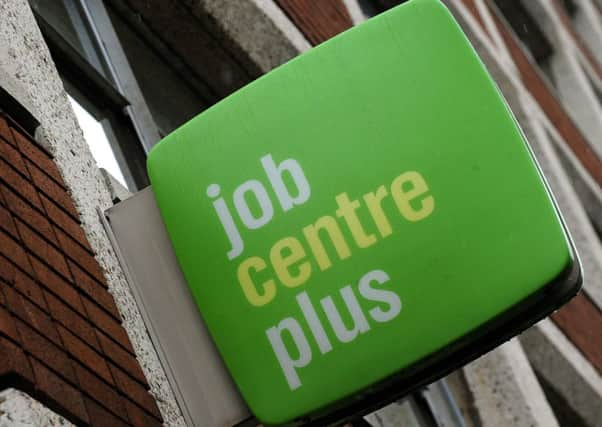How the benefit safety net turned into the welfare trap


I have always worked. Not necessarily in the most glamorous of jobs, but I’ve always been willing to do whatever it has taken to pay my own way. However, as I learnt to my cost sometimes life has a habit of pulling the rug from under you.
It happened to me 14 years ago when my marriage ended and I was left to raise my daughter alone. The fall out was huge. I suffered from depression and bulimia and for a while - eight years in fact - I was completely unable to work.
Advertisement
Hide AdAdvertisement
Hide AdI felt shamed and shunned by society and used as a scapegoat. But why? Since the age of 13 I had babysat, cleaned, and for a spell worked in a chip shop all to contribute to my family’s income. I was on benefits not because I was afraid of work, but because I had run out of options.
However, I quickly realised that for many the link between the workless and the worthless is strong. There’s a feeling that those who claim welfare simply don’t want to be part of society. I felt that worthlessness too. Being reliant on welfare was also a big dent to my own self-confidence.
Childcare was a particular challenge. Even when my daughter started school there were few jobs which fitted around being able to drop her off and pick her up. Then one day I had a brainwave. I thought if I could become a school secretary I could finish work at the same time as her and have the same holidays.
So, I went nervously to a local adult education centre. There I met a youth and community worker, who linked me up with a local charity that ran a community centre. I knew that I wouldn’t be able to walk into full time employment straight away. After years of feeling worthless there was a lot of rebuilding to be done.
Advertisement
Hide AdAdvertisement
Hide AdFirst I took a course designed to improve my confidence and began volunteering. For the first time in as long as I could remember I began to feel I had something to contribute. People at the community centre believed in me which helped me to believe in myself. I joined their management committee and, with a stronger sense of aspiration, I decided to try to become a youth and community worker. If I was going to do it, I knew I would need further experience and education.
The local charity paid for a three-year, part-time course and I volunteered four days a week. I qualified, did a work placement and was finally able to begin work as a community worker. I have been in employment ever since. Contributing to the financial and social economy gives you a sense of self-worth that is unimaginable when you’re on benefits.
So if I could do it, why can’t others?
Well, to start with, youth and community budgets have been slashed and many local adult education centres have been closed. The landscape is very different to the one I started out in all those years ago. Stepping stone groups, informal courses and routes to engagement have been replaced by basic skills and literacy – important but not the same. Many of the grassroots local charities are now restricted by funding and required target work to a targeted group of individuals. The days of core grants and free public spaces to meet are fading fast.
When you’re not in work, doing unpaid volunteer work can help you maintain a useful engagement with society, strengthen your CV and make you more employable. But regulation makes this very difficult now. If you did manage to get into college while on benefits, you would not be able to volunteer at the same time because you would be penalised for not actively seeking work. To me and many others the situation seems illogical.
Advertisement
Hide AdAdvertisement
Hide AdWe talk about ‘people on benefits’ as if they’re one homogenous group of scroungers, rather than a diverse group of people with a broad range of complex stories, abilities and needs. The majority of the people we’re talking about are, like everyone else, just trying to do the best with what’s available to them. It is not their fault that the systems set up seem focused on the urgent, not the important; on short-term outputs instead of long-term outcomes.
The urgency of successive governments to reduce unemployment figures and reduce spending too often runs counter to offering a safety net to catch us when we fall. But this can be short-sighted, in social and economic terms as it takes time and support to build a confident, well-skilled and economically-resilient workforce.
Tracey Robbins now works as a programme manager for the York based social research charity, the Joseph Rowntree Foundation.